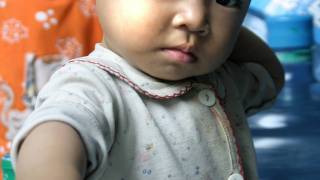Coronavirus Pandemic Disrupted Children’s Vaccinations

With reports of laboratory-confirmed COVID-19 disease cases in all 50 states, disruptions were anticipated in the U.S. health care system’s ability to continue providing routine preventive vaccinations.
To the extent that this is the case, reminding parents of the vital need to protect their children against serious vaccine-preventable diseases is critical.
And, as social distancing requirements are relaxed, children who are not protected by vaccines will be more vulnerable to diseases such as measles.
In response to this concern, the US Centers for Disease Control and Prevention (CDC) posted new guidance on March 24, 2020, emphasizing the importance of well-child immunizations.
To better understand the coronavirus pandemic’s impact, a new CDC report published on May 8, 2020, examined two data sources to assess the impact of the pandemic on pediatric vaccination in the USA: Vaccines for Children Program (VFC) provider order data from CDC’s Vaccine Tracking System and Vaccine Safety Datalink (VSD) vaccine administration data.
The VFC is a national program that provides federally purchased vaccines to approximately 50% of U.S. children aged 0–18 years.
Cumulative doses of VFC-funded vaccines ordered by healthcare providers at weekly intervals during two periods January 7 –April 21, 2019, and January 6 –April 19, 2020, were tallied, and differences in cumulative weekly vaccine doses ordered between period 2 and period 1 were calculated for all non-influenza vaccines§ that the Advisory Committee on Immunization Practices (ACIP) recommends for children and, as an example, for measles-containing-vaccines.
VSD is a collaborative project between CDC’s Immunization Safety Office and eight U.S. health care organizations serving publicly and privately insured patients.
Aggregate counts of measles-containing vaccine doses administered each week at VSD sites during period 2 were compared between two pediatric age groups: children aged ≤24 months and those aged >24 months through 18 years.
The Vaccine Tracking System data indicates a notable decrease in orders for VFC-funded, ACIP-recommended non-influenza childhood vaccines, and for measles-containing vaccines during period 2 compared with period 1.
The decline began the week after the national emergency declaration; similar declines in orders for other vaccines were also observed.
VSD data show a corresponding decline in measles-containing vaccine administrations beginning the week of March 16, 2020.
The decrease was less prominent among children aged ≤24 months than among older children.
The subsequent increase in vaccine administrations observed in late March was more prominent in younger than older children.
The substantial reduction in VFC-funded pediatric vaccine ordering after the COVID-19 emergency declaration is consistent with changes in vaccine administration among children in the VSD population receiving care through eight large U.S. health care organizations.
The smaller decline in measles-containing vaccine administration among children aged ≤24 months suggests that system-level strategies to prioritize well child care and immunization for this age group are being implemented.
Increases in vaccine administration to children aged ≤24 months beginning in late March might reflect the early success of strategies implemented by VSD health care organizations to promote childhood vaccinations in the context of the pandemic, including outreach to patients overdue for vaccinations and changing office workflows to minimize contact between patients.
Assessment of state and local vaccination coverage is needed to quantify the impact among U.S. children of all ages and prioritize areas for intervention.
The ongoing COVID-19 pandemic is a reminder of the importance of vaccination.
The identified declines in routine pediatric vaccine ordering and doses administered might indicate that U.S. children and their communities face increased risks for outbreaks of vaccine-preventable diseases.
Parental concerns about potentially exposing their children to COVID-19 during well-child visits might contribute to the decline observed.
In response, continued coordinated efforts between health care providers and public health officials at the local, state, and federal levels will be necessary to achieve rapid catch-up vaccination.
Precision Vaccinations publishes children’s vaccine news.
Our Trust Standards: Medical Advisory Committee


























